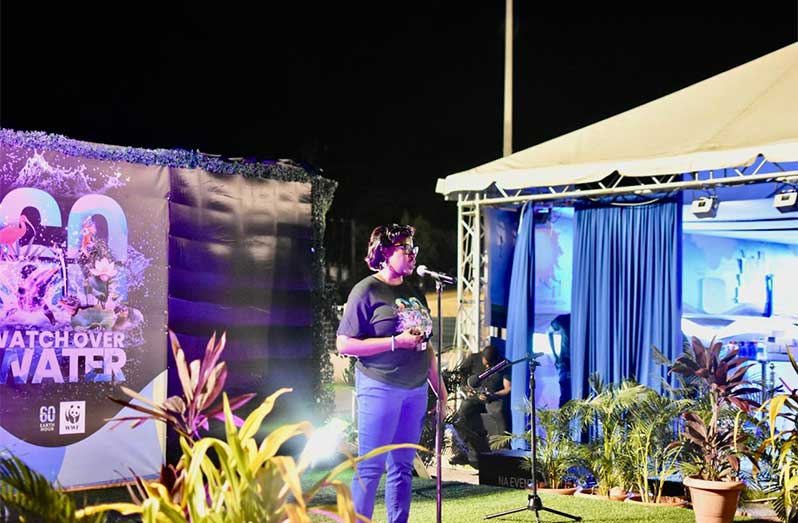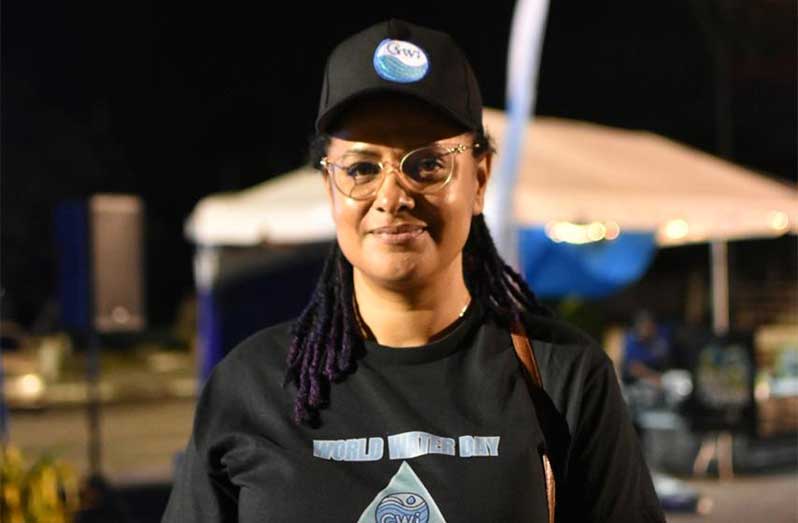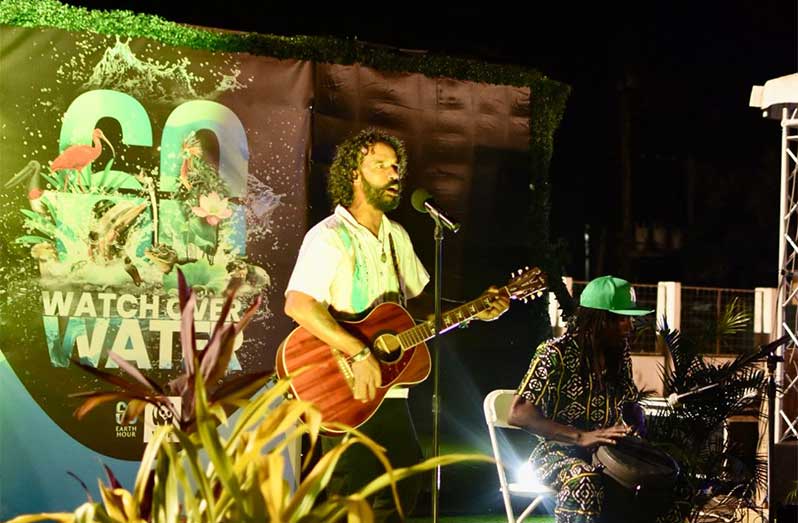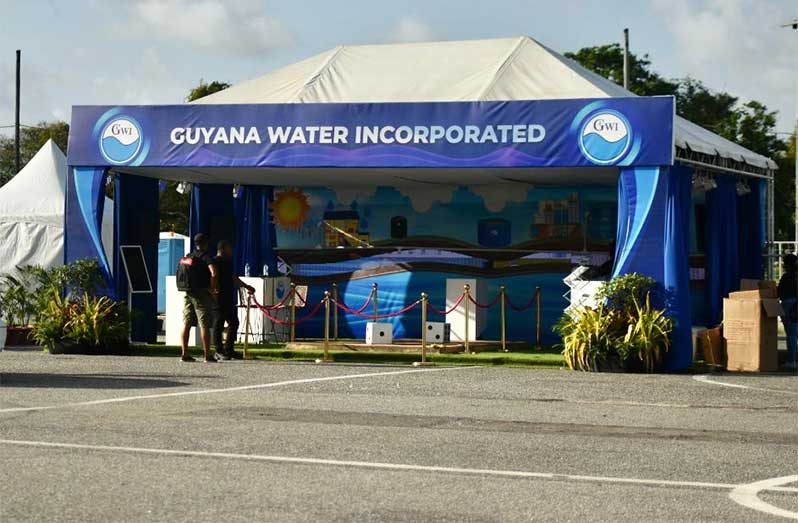-GWI highlights expanded water conservation, renewable energy efforts
Story and photos by Shaniya Harding
THE National Park tarmac stood still and dark from 20:30hrs to 21:30 hrs on Saturday as Guyana marked its 11th annual Earth Hour.
Hosted by the World Wildlife Fund (WWF) in Guyana, the event saw support from the Protected Areas Commission, the Environmental Protection Agency, the Guyana Water Incorporated (GWI) and various other organisations.

There was also an impressive turnout as families and young people came out in their numbers to enjoy the event’s scavenger hunt, presentations and various booths, which hosted games and giveaways.
Country Director of WWF, Aisha Williams, underscored the significance of Earth Hour, stating, “Earth Hour is meant to take at least one hour, just one hour. Take at least one hour of your time today, and as you go along in life, take one hour to embrace preserving nature, preserving wildlife, taking action that relates to the sustainability of our planet,” she stated.
Williams also emphasised the importance of valuing Guyana’s abundant freshwater resources. “While Guyana is fortunate to have the amount of fresh water that we do, emphasis still needs to be placed on preserving it as it is a lifeline to thousands of people. In many areas, people depend on freshwater resources, but in other areas, like islands, they don’t have as much fresh water as we have in Guyana, so we should really value what exists in our land—the land of many waters.”
WATER MANAGEMENT AND SUSTAINABILITY
This year’s Earth Hour coincided with World Water Day, allowing agencies like GWI to highlight their ongoing efforts in water conservation.
Delivering remarks on behalf of GWI, hydrologist Angela Franklin highlighted the agency’s ongoing projects aimed at improving water management, distribution, and quality across the country.
One such initiative is the study of Guyana’s coastal aquifer system. “We have been carrying out studies on the coastal aquifer system specifically because we believe that you cannot manage what you do not understand and what you do not know. And so we’ve been in collaboration with ACTO and climate projects to better understand how our coastal aquifer systems respond to various factors—climate change, increased demand, and rapid development,” Franklin explained.
In addition to groundwater studies, GWI is actively exploring alternative water sources. Franklin noted that surface water sources, such as the East Demerara Water Conservancy, are being tapped for major treatment plants, including those at Hope on the East Coast and Diamond on the East Bank of Demerara.

Further inland, GWI has been assessing the potential of Dakoura Creek in Linden as an alternative water source to reduce reliance on the Demerara River, which presents water quality challenges. “We’re not just intending to use this source; we’re also looking to understand it and help manage it through the development of a watershed management plan,” she said.
Another critical aspect of GWI’s work is the drilling of new wells while phasing out underperforming ones. “Ninety per cent of our water resources come from groundwater, making it vulnerable to climate change, sea-level rise, and over-abstraction. While we are commissioning new wells to meet growing demand, we are also removing wells that are not operating optimally,” the GWI official added.

In line with Guyana’s renewable energy goals, GWI is also taking steps to reduce its carbon footprint. “Just this January, we commissioned a 300-kilowatt solar system at one of our treatment plants. While it is a grid-tied system, meaning we are not using batteries due to cost, the system offsets our energy demand and reduces our carbon footprint,” she said.
The event not only reinforced the importance of preserving the environment but also showcased the strides being made by agencies like GWI in ensuring a sustainable water future for Guyana.




.jpg)









